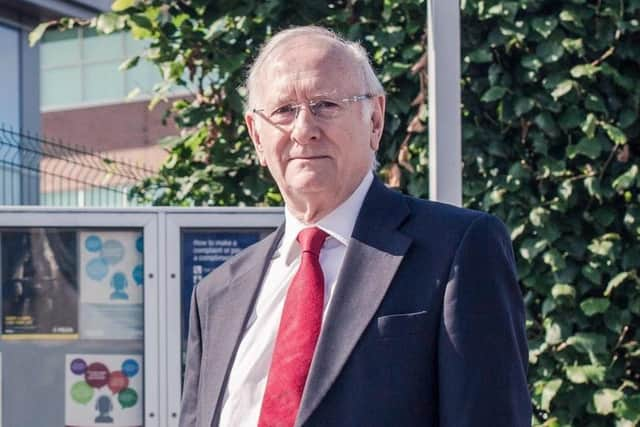'Concerning' reactions to South Yorkshire Police officers attending non-crime incidents
and live on Freeview channel 276
In his blog, Dr Alan Billings addresses the type of non-crime matters that South Yorkshire Police often attend, and says there is a ‘mismatch’ between what the public think the police should do, and what they actually have to do day-to-day.
Dr Billings gives examples of the non-crime matters officers deal with daily, such as finding missing children, helping someone who is having a mental health episode, ‘maintaining law and order in the streets around a football ground’, talking to pensioner groups about protecting themselves from cyber fraud, and going into schools and speaking to children about the dangers of carrying knives.
Advertisement
Hide AdAdvertisement
Hide Ad

“When I explain to groups how much time these ‘non-crime’ matters or ‘incidents’ probably take up, some people can become quite agitated and even angry. ‘We don’t pay the police to be social workers’, is a common reaction when I talk about the police having to deal with missing persons or those with mental health issues,” writes Dr Billings.
“There may be some unreality behind these remarks – the police could not refuse to find an elderly dementia sufferer who has not come home.
“But there is also a sober recognition that resources are limited and therefore every hour that an officer spends dealing with incidents and non-crime matters is an hour that is not being given to investigating crime.
“These reactions are concerning when the non-crime area of policing is growing, not least because other parts of the public sector have been slowly declining or cannot cope.
Advertisement
Hide AdAdvertisement
Hide Ad“At one time, for example, a children’s home would have been in the public sector with more generous staffing and a staff member would take themselves into town to find the missing teenager on a Friday night. But in today’s private homes there are too few on duty to do that now.
“The growth of demand which is not crime is growing and there is no way the police can refuse to respond.
“The teenager who has missed an 11pm deadline will have to be found and brought back safely however time-consuming and resource-intensive it will be.
“But also, each year I have to determine what the precept (council tax) should be for policing. If I raise it, I have to give good reasons, and for many people, spending more time on non-crime matters is not a good reason.
Advertisement
Hide AdAdvertisement
Hide Ad“There has to be an expansion of the public understanding of what the police do and a greater willingness to see this as what the modern police force is for.
“Otherwise we are on a journey to endless frustration however many new officers we have.”
